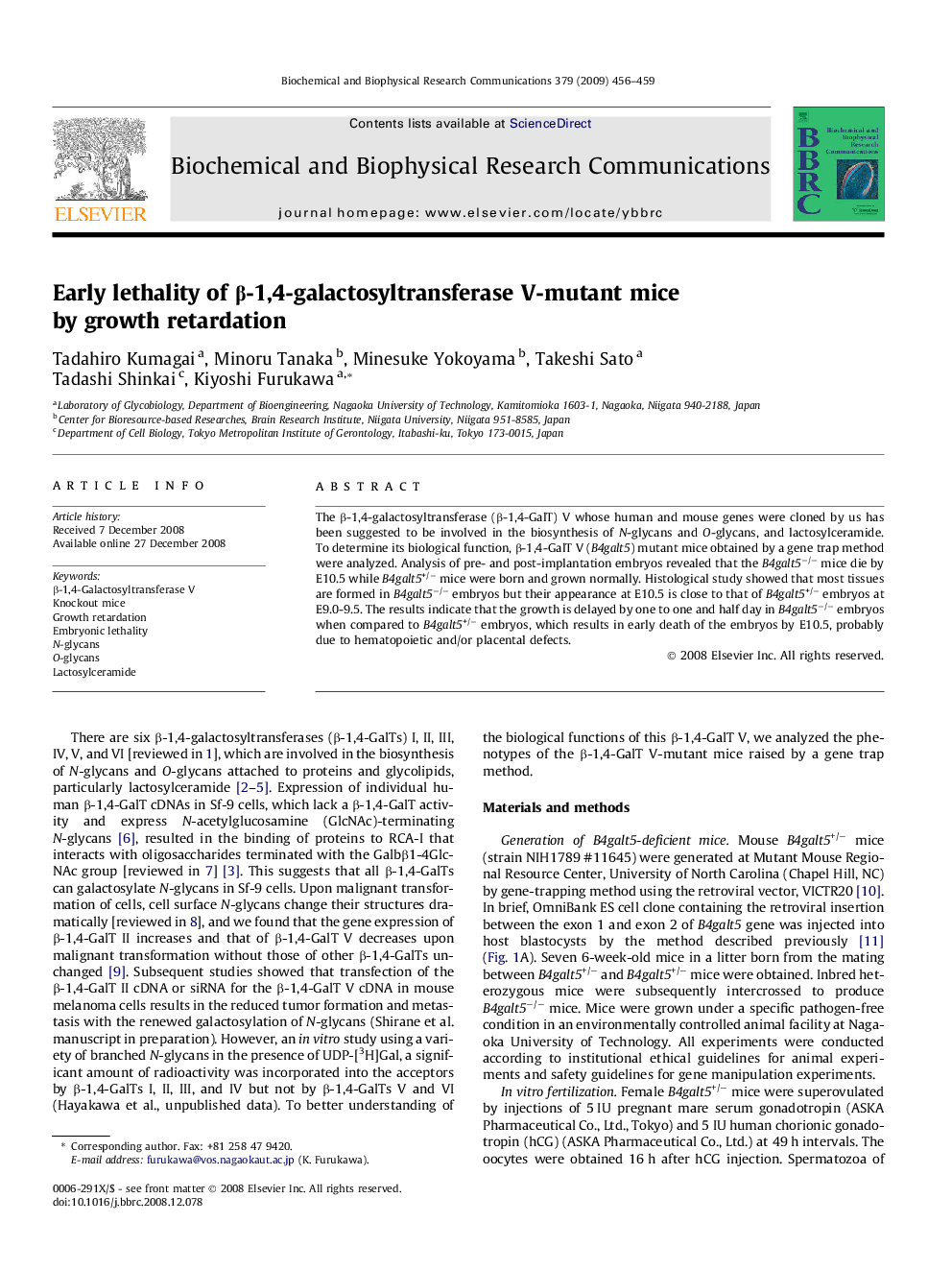| Article ID | Journal | Published Year | Pages | File Type |
|---|---|---|---|---|
| 10766428 | Biochemical and Biophysical Research Communications | 2009 | 4 Pages |
Abstract
The β-1,4-galactosyltransferase (β-1,4-GalT) V whose human and mouse genes were cloned by us has been suggested to be involved in the biosynthesis of N-glycans and O-glycans, and lactosylceramide. To determine its biological function, β-1,4-GalT V (B4galt5) mutant mice obtained by a gene trap method were analyzed. Analysis of pre- and post-implantation embryos revealed that the B4galt5â/â mice die by E10.5 while B4galt5+/â mice were born and grown normally. Histological study showed that most tissues are formed in B4galt5â/â embryos but their appearance at E10.5 is close to that of B4galt5+/â embryos at E9.0-9.5. The results indicate that the growth is delayed by one to one and half day in B4galt5â/â embryos when compared to B4galt5+/â embryos, which results in early death of the embryos by E10.5, probably due to hematopoietic and/or placental defects.
Related Topics
Life Sciences
Biochemistry, Genetics and Molecular Biology
Biochemistry
Authors
Tadahiro Kumagai, Minoru Tanaka, Minesuke Yokoyama, Takeshi Sato, Tadashi Shinkai, Kiyoshi Furukawa,
